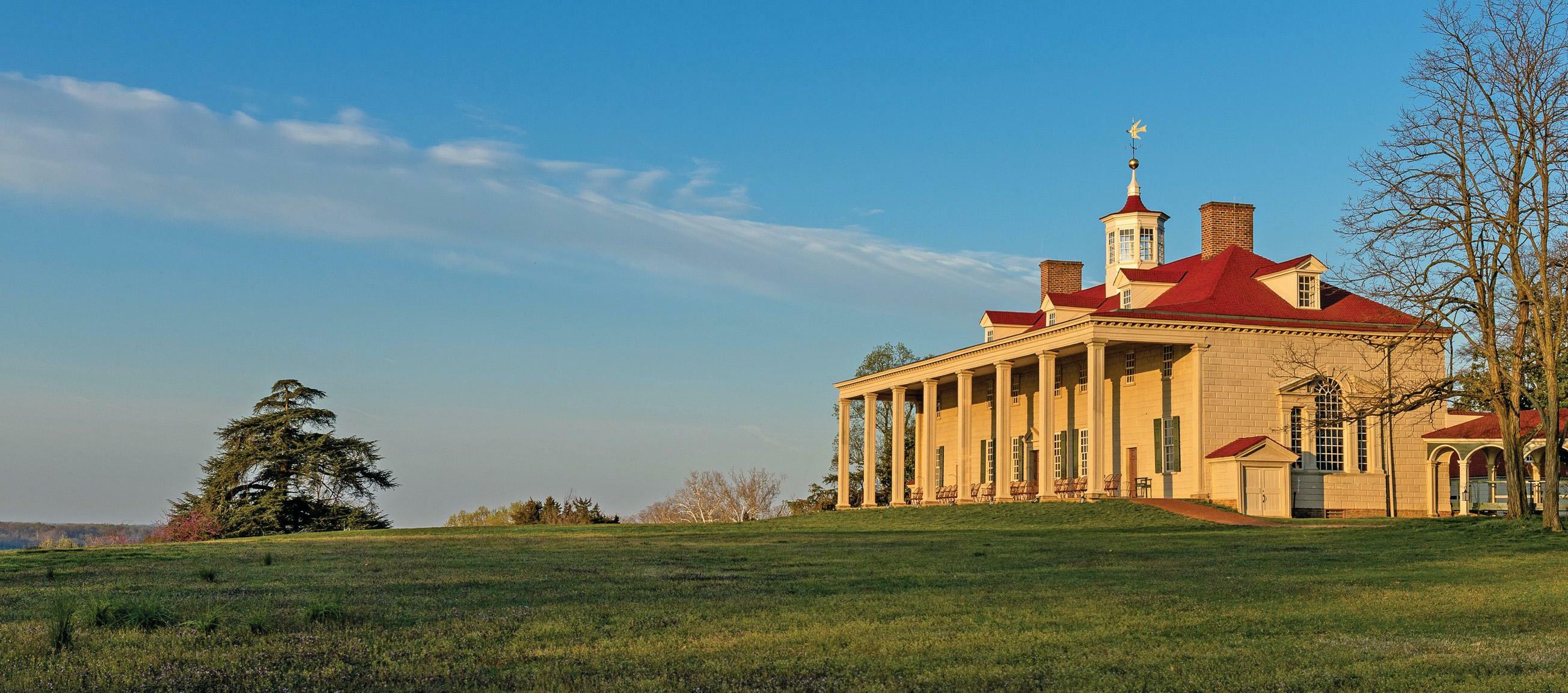
MOUNT VERNON―the former home of George Washington, first President of the US-is an extraordinary place; a dignified Virginian gentleman's seat (Fig 1) overlooking the Potomac River that was built in several phases throughout the 18th century. With an exterior clad in timber, detailed and painted to appear like stone rustication, the house is probably the most intensely researched in America. It has been the subject of a sustained preservation campaign, with a great deal of significant work taking place over the past 12 years; this is due for completion in 2026 and will be part of the 250-year celebrations of the signing of the Declaration of Independence.
A final phase includes the reintroduction of a lost timber sole plate that will help underpin the structural integrity of the building for the next century. This is the first of two articles examining the history of the house and site as it moves towards the end of a major programme of repairs. The second article will focus on the restoration of the interiors.
Unsurprisingly, Mount Vernon has been a subject of fascination, mostly because of George Washington, major-general and commander-in-chief of the American or 'Continental' army that fought the British in the American Revolutionary War (as the War of Independence is now usually known), before becoming the first elected president of the new American nation (Fig 4). His character and values helped shape the fledgling country's sense of self and he himself shaped Mount Vernon, providing designs for the house with his own pen, in the spirit of a gentleman amateur, and the provision of pattern-book exemplars for his craftsmen.
This story is from the September 25, 2024 edition of Country Life UK.
Start your 7-day Magzter GOLD free trial to access thousands of curated premium stories, and 9,000+ magazines and newspapers.
Already a subscriber ? Sign In
This story is from the September 25, 2024 edition of Country Life UK.
Start your 7-day Magzter GOLD free trial to access thousands of curated premium stories, and 9,000+ magazines and newspapers.
Already a subscriber? Sign In

Give it some stick
Galloping through the imagination, competitive hobby-horsing is a gymnastic sport on the rise in Britain, discovers Sybilla Hart

Paper escapes
Steven King selects his best travel books of 2024

For love, not money
This year may have marked the end of brag-art’, bought merely to show off one’s wealth. It’s time for a return to looking for connoisseurship, beauty and taste

Mary I: more bruised than bloody
Cast as a sanguinary tyrant, our first Queen Regnant may not deserve her brutal reputation, believes Geoffrey Munn

A love supreme
Art brought together 19th-century Norwich couple Joseph and Emily Stannard, who shared a passion for painting, but their destiny would be dramatically different

Private views
One of the best ways-often the only way-to visit the finest privately owned gardens in the country is by joining an exclusive tour. Non Morris does exactly that

Shhhhhh...
THERE is great delight to be had poring over the front pages of COUNTRY LIFE each week, dreaming of what life would be like in a Scottish castle (so reasonably priced, but do bear in mind the midges) or a townhouse in London’s Eaton Square (worth a king’s ransom, but, oh dear, the traffic) or perhaps that cottage in the Cotswolds (if you don’t mind standing next to Hollywood A-listers in the queue at Daylesford). The estate agent’s particulars will give you details of acreage, proximity to schools and railway stations, but never—no, never—an indication of noise levels.

Mission impossible
Rubble and ruin were all that remained of the early-19th-century Villa Frere and its gardens, planted by the English diplomat John Hookham Frere, until a group of dedicated volunteers came to its rescue. Josephine Tyndale-Biscoe tells the story

When a perfect storm hits
Weather, wars, elections and financial uncertainty all conspired against high-end house sales this year, but there were still some spectacular deals

Give the dog a bone
Man's best friend still needs to eat like its Lupus forebears, believes Jonathan Self, when it's not guarding food, greeting us or destroying our upholstery, of course